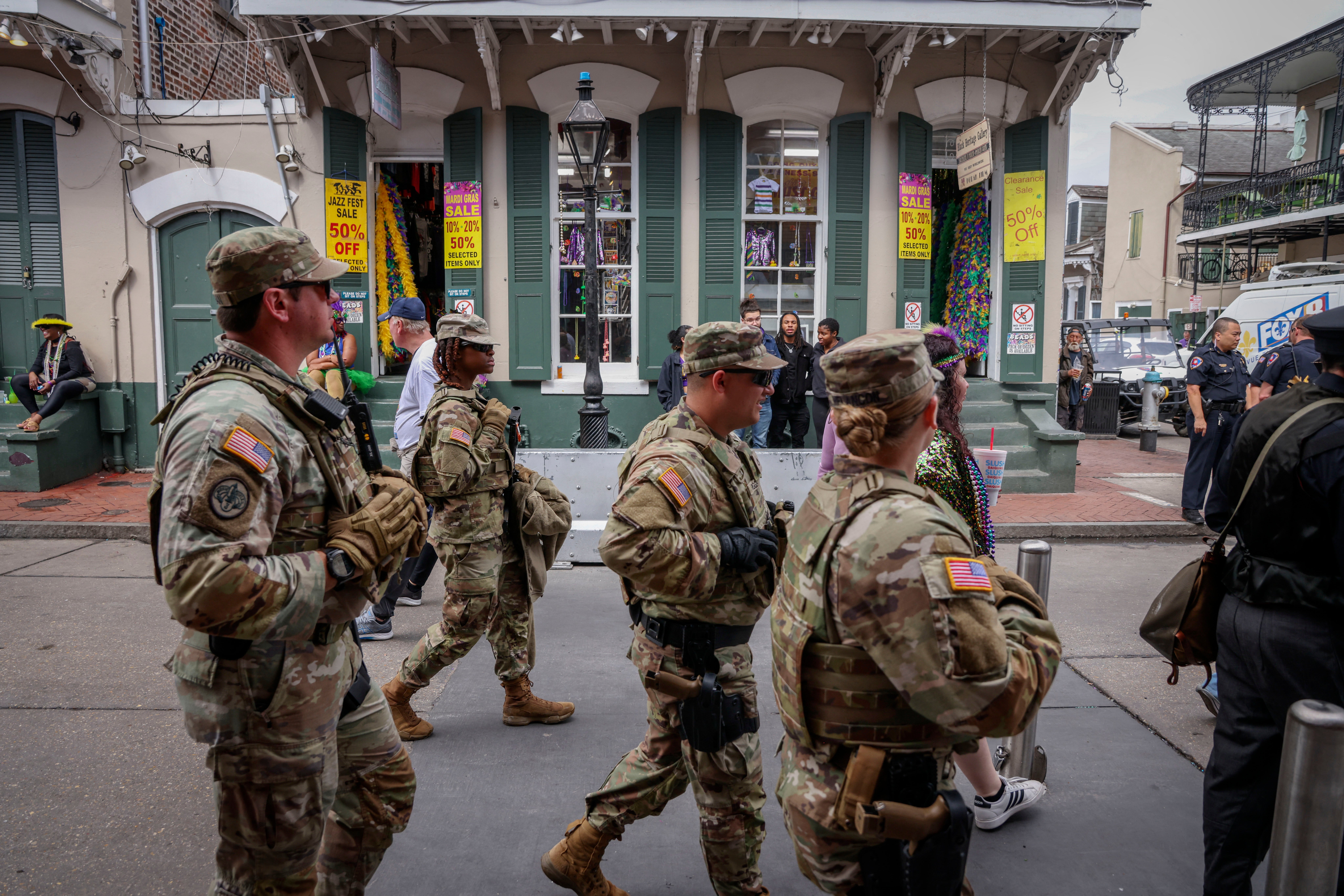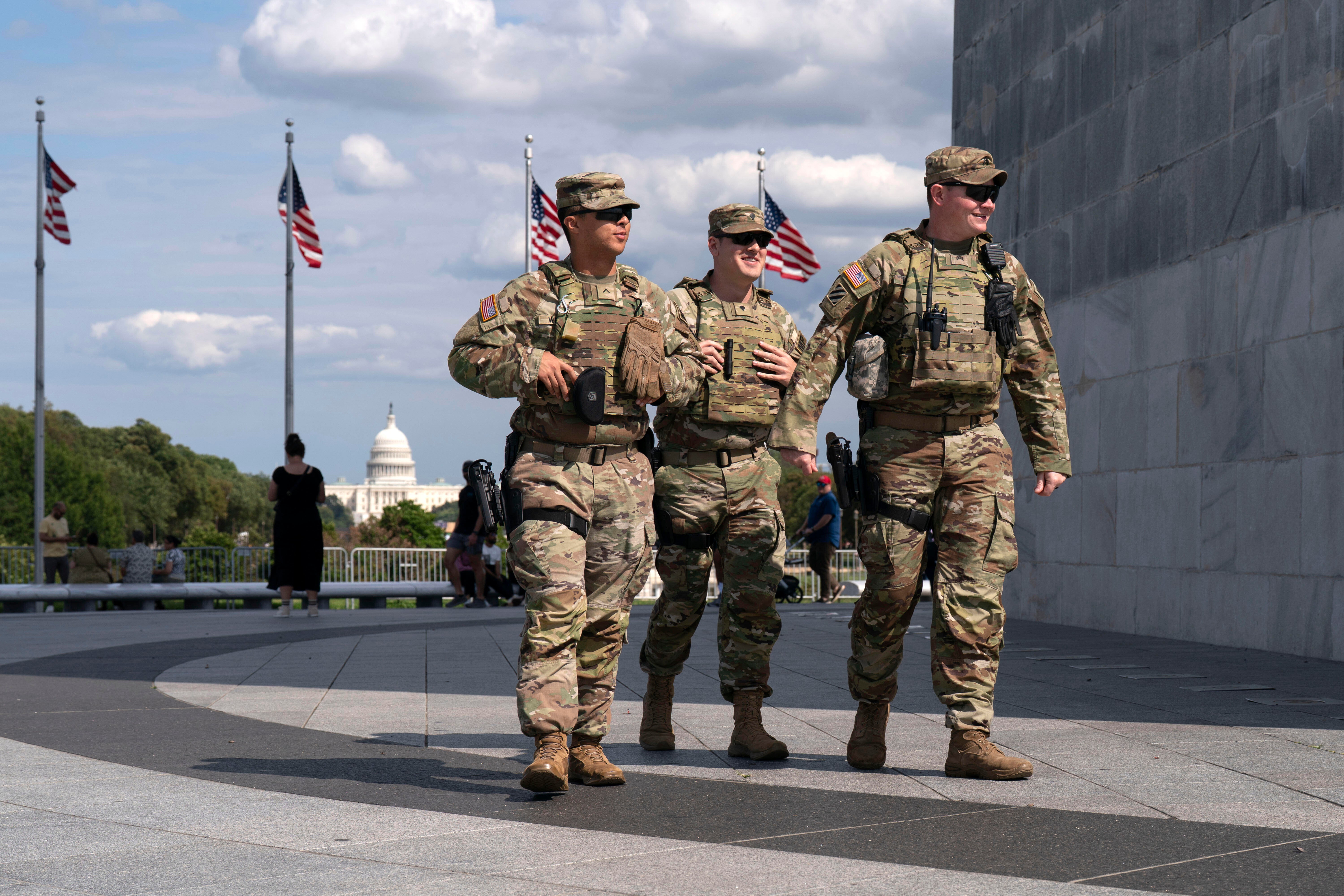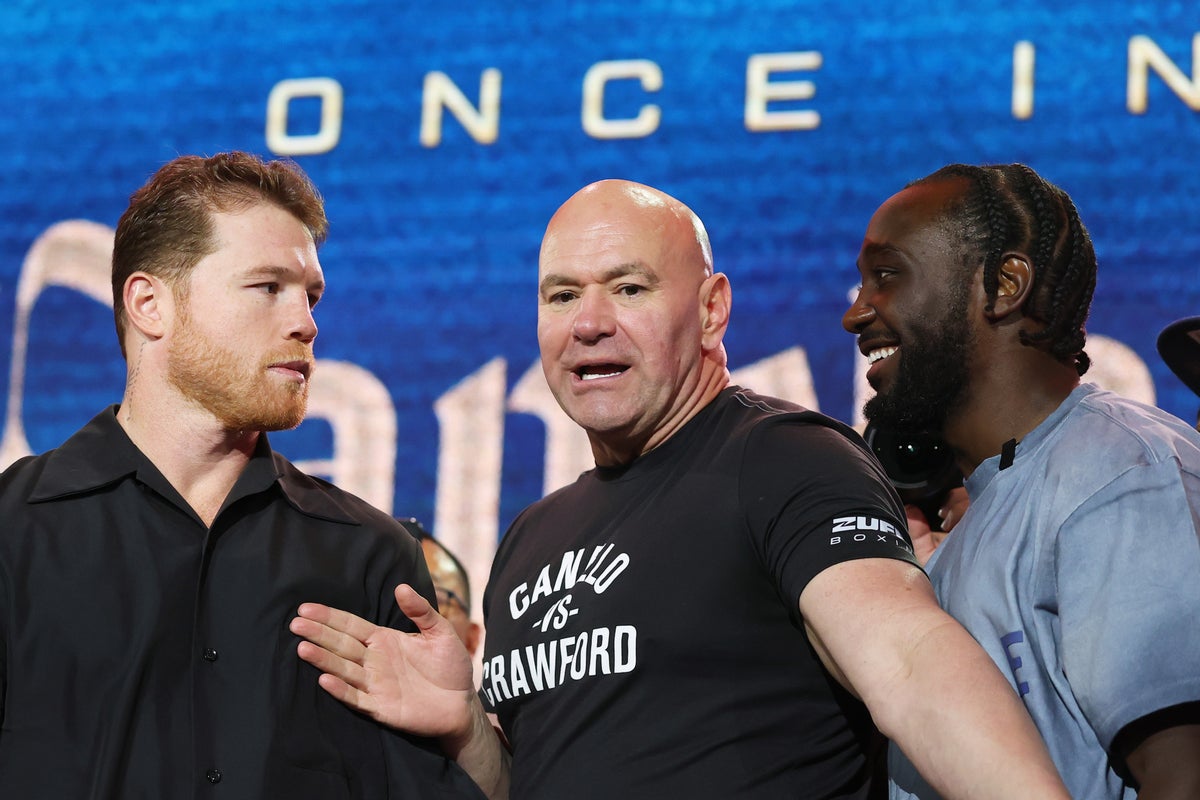The Trump administration has reportedly drafted plans to activate roughly 1,000 Louisiana National Guard troops and send them to the state’s “urban centers” like New Orleans, the latest potential expansion of the unprecedented White House effort to use military troops in law enforcement in Democratic-led cities around the country.
In an undated memo obtained by The Washington Post, the Department of Defense described a potential plan, lasting through September 2026, to activate such troops if the Republican governor of Louisiana requests them.
The documents described the plan as having a “unique advantage” of working with the state’s Republican Governor Jeff Landry, whose support could allow the federal government to invoke Title 32 of the U.S. Code, allowing the National Guard to operate under state control with federal funds, avoiding running afoul of a bedrock federal law stopping the military from being involved in domestic law enforcement.
“Leaked documents should not be interpreted as policy,” the Pentagon said in a statement to the paper, affirming the documents’ authenticity. “We will not discuss these plans through leaked documents, pre-decisional or otherwise.”
The Independent has requested comment from Landry’s office.

The president has been floating sending troops to New Orleans, a Democratic-led city in a Republican state, since earlier this month, following deployments of troops in Washington and Los Angeles, as well as so-far-unrealized threats to send the military into Chicago.
Landry recently wrote on X that Louisiana wanted Trump’s “help from New Orleans to Shreveport!”
Trump claimed this week that New Orleans is in “really bad shape,” though the police department there in May reported a 20 percent decrease in violent crime so far this year compared with the same period last year.
The president has also said troops will be sent to Memphis, another blue city in a red state. Murder in the city is currently at a six-year low.
“We’re gonna fix that just like we did Washington,” Trump told Fox and Friends on Friday of Memphis. “I would’ve preferred going to Chicago.”

The mayor of Memphis, Paul Young, has said he opposes a federal military action in the city to fight crime.
“I did not ask for the National Guard and I don’t think it is the way to drive down crime,” he said at a news conference. “However, that decision has been made.”
Last week, the District of Columbia sued the Trump administration over sending the Guard into the capital, arguing the operation was an illegal “military occupation” which violated federal prohibitions on using troops for law enforcement.
A federal judge ruled in early September that the administration “willfully” broke the law by sending National Guard troops into Los Angeles over the objection of state officials to respond to anti-immigration raid protests, writing that the operation raised the specter of “creating a national police force with the President as its chief.”
The administration has appealed the ruling.




